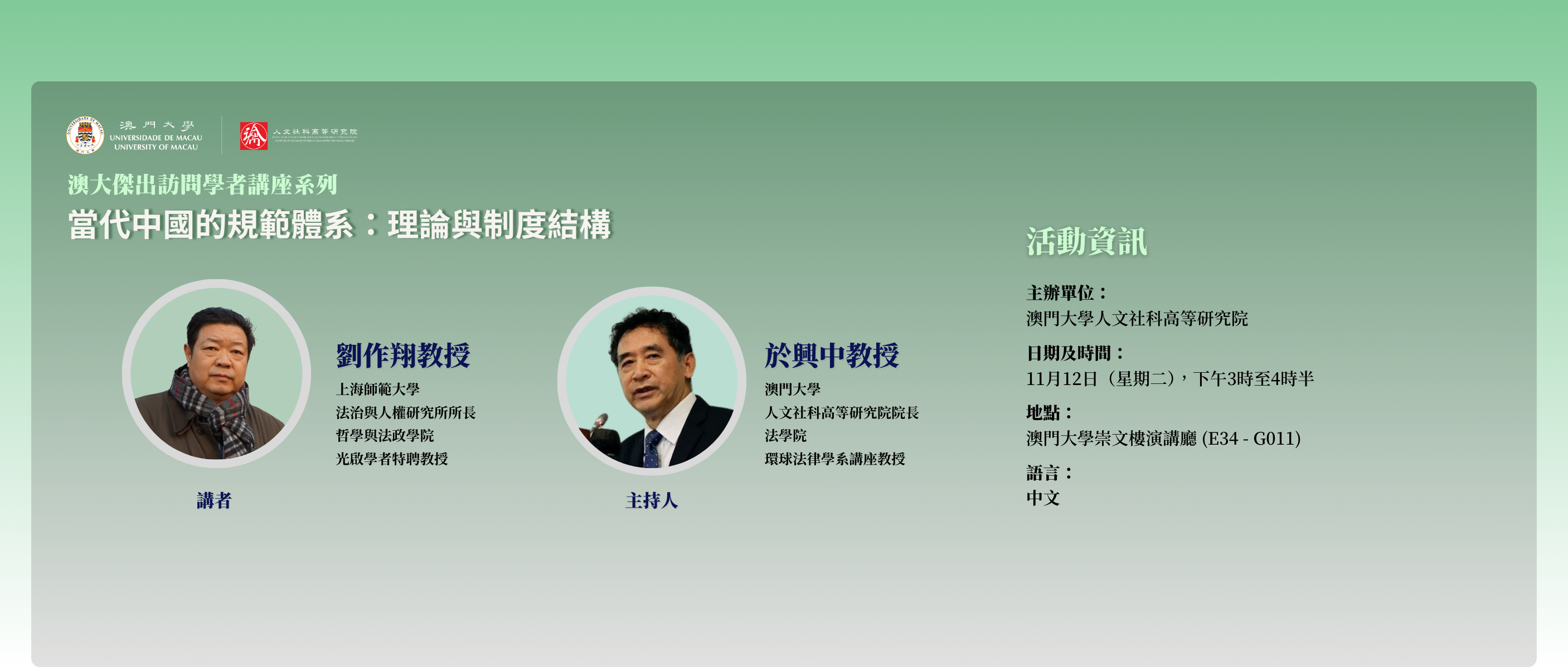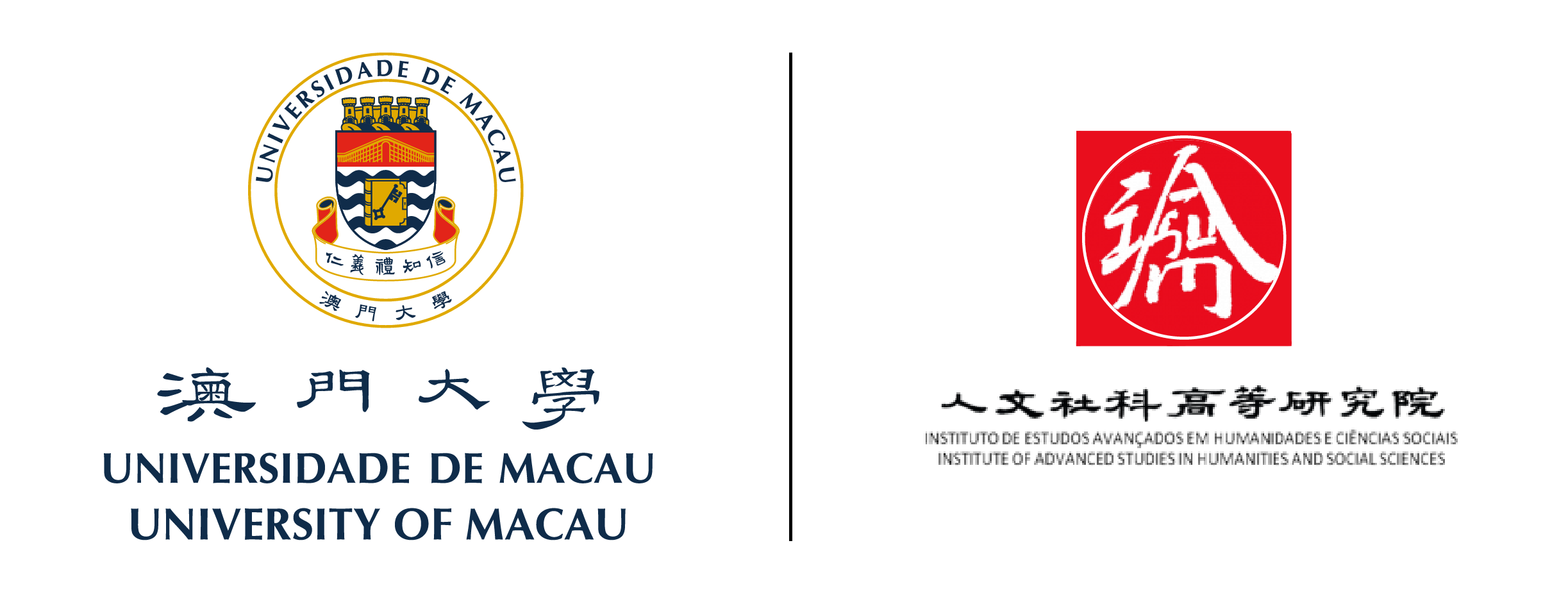
The UM Distinguished Visiting Scholar Lecture organized by the Institute of Advanced Studies in Humanities and Social Sciences (IAS) was successfully held on November 12th. Professor Liu Zuoxiang, Distinguished Professor of College of Philosophy, Law and Political Science from Shanghai Normal University, was invited to lecture on the theme of “Norm Systems in Contemporary China: Theory and Institutional Structure”. Professor Yu Xingzhong, Chair Professor at the Faculty of Law at the University of Macau and Director of IAS, was invited to be the moderator.
At the beginning of the lecture, Professor Liu elaborated on the concept of the governance of modern countries and societies. Legal norms, party regulations, party policies, state policies, and social norms are the types of norms objectively existing in contemporary Chinese society. He explored the functions and interrelationships of these norms in society and pointed out that there are complex interactions between various norm systems. All norm systems should follow the principles of the constitution and laws.
By comparing Kelsen’s Hierarchy of Norms, Professor Liu emphasized the uniqueness of the norm systems in Contemporary China, which extends beyond legal norms to encompass the entire social norm systems, reflecting the coexistence of diverse norms and the dominance of the rule of law.
During the feedback session, Professor Yu Xingzhong expressed gratitude for this lecture and highlighted the classification of the norm systems and the interrelationships among the various norms. He pointed out the comparison between China’s norm reality and Kelsen’s theory, which provides a clear theoretical framework and stimulates the participants’ in-depth thinking.
Professor Shui Bing praised the lecture for its detailed analysis and effective use of materials. He highlighted the clarity of the presentation as a valuable model. At the same time, he mentioned that many law students came to the lecture, emphasizing the source and functional division of the norm system and believing that legal norms are a dynamic leading edge.
The Q&A session sparked engaging discussions among participants. Professor Liu emphasized the need to analyze family rules for their value and the importance of open judicial interpretations for effective implementation. He also highlighted that party regulations and policies are important within the norm systems and should align with legal principles to maintain coherence under the law.
The lecture not only provided participants with a theoretical framework but also inspired new perspectives for future research and practice.
Last but not the least, we would like to extend our gratitude again to the Research Services and Knowledge Transfer Office (RSKTO) for their support and assistance of the Distinguished Visiting Scholar Scheme.







